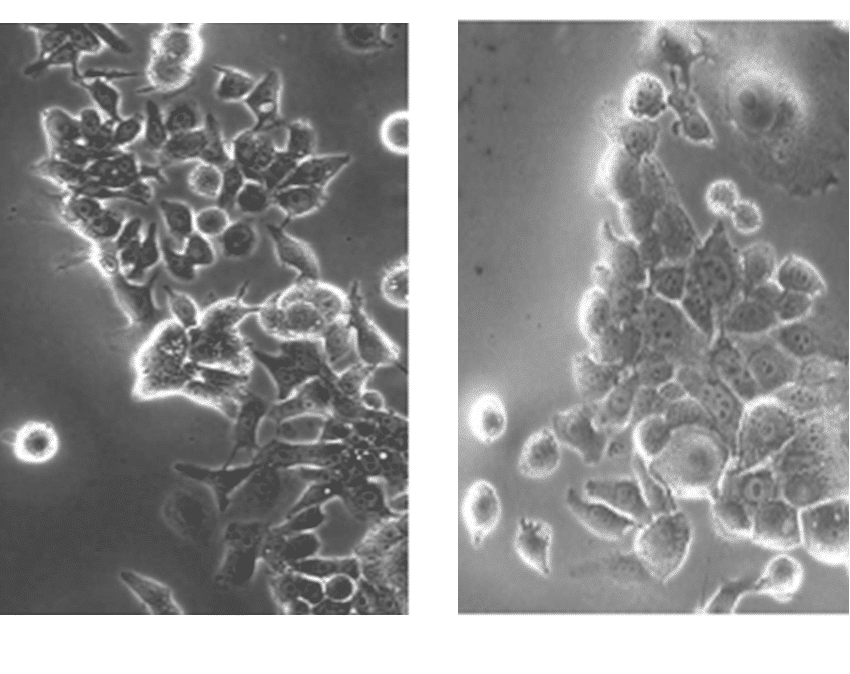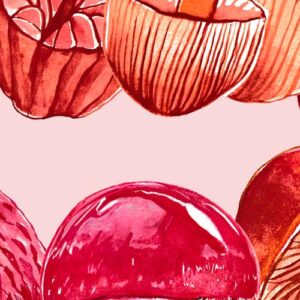Table of Contents
Mushroom extracts could influence the metastasis process that is currently responsible for 90% of cancer-related deaths. According to a recent article published in the International Journal of Medical Sciences, extracts rich in polysaccharides of certain fungi inhibit the proliferation of tumour cells and their oncogenic potential, as well as the ability to migrate and invade other tissues; acting thus on the cellular changes identified with the metastatic process.
These are the results obtained by the Biomedical Research Institute of A Coruña (INIBIC) within the framework of the FungiTechOnco R&D project, which also involved researchers from the biotech Hifas da Terra and CZ Veterinaria, and whose conclusions were recently presented at the 16th International Congress of the Spanish Association for Research on Cancer (ASEICA).
FungiTechOnco Project
The findings represent an “important advance in research for the development of products that help to improve the quality of life of patients”, point out from the R&D department of Hifas da Terra. As they explain, in the metastatic cascade epithelial cells detach from the primary tumour, migrate and acquire the ability to invade and spread throughout the body. “What has allowed this study is to evaluate the direct action of the extracts of Grifola frondosa and Trametes versicolor on cellular changes in colorectal cancer,” they conclude.

Previous publications had already verified the antiproliferative, antiviral, antimicrobial and immunomodulatory effects of these fungi. The most recent studies, carried out on breast and gastric cancer cells, also showed that the extracts enriched with Grifola frondosa polysaccharides induced toxicity and apoptosis. According to the conclusions presented in ASEICA by Dr. Angélica Figueroa, responsible for the published study and director of the Research Group in Clinical and Translational Oncology of INIBIC, the results “confirm the antitumor activity of fungal extracts” and “support their use in trials clinical trials for the treatment of colorectal cancer “, which to date had not been addressed with this type of extracts in any previous research.
Limitation of viability and cell proliferation
In order to carry out this in vitro study, different analytical methods were used with LoVo human colorectal cancer cell lines, derived from a metastatic site, and HT-29, with an epithelial morphology. The different tests carried out have concluded that the extracts “have therapeutic effects thanks to biologically active compounds such as polysaccharides and their derivatives,” says Catalina Fernández de Ana, co-author of the article and director of Hifas da Terra, the company that developed the extracts for the study.
The antiproliferative trials showed better results than those of cytotoxicity on both cell lines. Specifically, the effects of extracts of Trametes versicolor inhibited cell growth up to 45% while those of Grifola frondosa reached reductions of up to 80%. In a complementary way, the cytotoxicity test showed reductions of up to 60-70%, the cytotoxic effect of Grifola frondosa extracts being more potent.
Increases the cytotoxicity of chemotherapy
Although evidence of the cytotoxic activity of fungal extracts in combination with chemotherapeutic agents is handled, the article reports that until this study an “optimal combination regimen” had not been developed. Thanks to the tests carried out in the framework of the FungiTechOnco project, MTT toxicity tests determined an increase in the toxicity of the combined extracts with 5-fluorouracil (5-Fu), a cytotoxic agent commonly used in patients with colorectal cancer. Fernández de Ana points out that the results in cell lines suggest that the extracts could “act as adjuvants together with chemotherapy in the treatment of cancer”.
Oncogenic potential
According to INIBIC researchers, in the metastatic process, tumour cells are able to survive and reproduce in the absence of a solid substrate. Thanks to tests carried out on soft agar with the extracts of both fungi, a “significant” decrease in the formation of LoVo cell colonies was observed, which determines the “oncogenic potential of the extracts in tumour progression”.
Migration and cellular invasion
At the cellular level, migration and invasion of the tumour trace are two characteristics of metastasis. The extracts of fungi showed wound closures of up to 50% in LoVo cells. Also, the invasion assays in the same cell lines “significantly attenuated” the invasive capacity of the tumour cells. These results indicate that both extracts “may be functional agents with great capabilities to treat the progression of colon cancer and metastasis,” says Fernández de Ana.
Tumour progression
The contrast microscopy, used to evaluate the tumour progression, allowed to compare the morphological changes produced by the extracts in the diseased cells. Compared with the untreated ones, the LoVo cells to which extracts were administered reversed their mesenchymal morphology, recovering the characteristic epithelial features of the non-tumor cells. This change was accompanied by a decrease in the protuberances in the membrane and an increase in cell-cell adhesion mediated by an increase in the protein E-cadherin. Previous evidence has identified the loss of this cell adhesion molecule with the progression of tumors. In this study, the Western blot analysis detected a “statistically significant increase” in the expression of E-cadherin after the administration of the extracts.
In relation to the progress of the tumour, this study also evaluated the activity of the gelatinases MMP-2 and MMP-9, associated in multiple studies prior to the invasion of tumors and metastasis. After treatment with both extracts, a zymogram assay found a 60% reduction in the activity of these metalloproteinases, which inhibits the degradation of the extracellular matrix. As explained by the authors in the article, the low activity of MMP-2 has been related to patient survival, specifically in breast cancer.
We recommend

Linoleic Acid: Why This Essential Omega-6 Is Vital for Your Health
☑️ Linoleic acid is a polyunsaturated omega-6 fatty acid essential for human health, as the body cannot synthesise it and must obtain it through diet. This fatty acid plays several critical roles, including supporting skin integrity, contributing to the formation of cell membranes, and serving as a precursor to important bioactive compounds. Its anti-inflammatory properties and role in maintaining the skin barrier make it particularly beneficial for skin health. Understanding the importance of linoleic acid and ensuring adequate intake can significantly impact overall well-being.

Are all red mushrooms toxic?
Red mushrooms are often perceived as toxic, but sometimes other properties are also recognised. Let’s discover them together in this post.